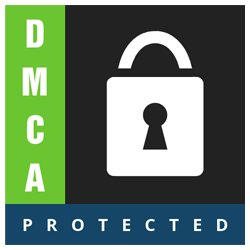Boa notícia, nesse momento de discussão sobre a necessidade de revisarmos a lei de direitos autorais no Brasil, acerca da inclusão de novas exceções ao copyright (ou fair uses, como são mais conhecidas) na legislação norte-americana. Veja o texto oficial aqui.

Algumas das novas exceçõe previstas, segundo o Washington Post:
- é permitida a quebra dos controles de acesso de aparelhos celulares para permitir seu uso com outras operadoras de telefonia
- é permitida a quebra das proteções em videogames para possibilitar a investigar ou corrigir de falhas de segurança
- é permitida, para professores, estudantes de cinema, produtores de documentários e de vídeos não-comerciais, a quebra de proteções anti-cópia em DVD’s para que possam ser usar trechos dos vídeos para fins educacionais, crítica ou comentários
- é permitida a quebra de dispositivos externos de proteção de softwares (hardlocks) se esses dispositivos não funcionam mais e nem podem ser substituídos
- é permitida a quebra de bloqueios em livros eletrônicos para que pessoas cegas possam utilizar programas que façam a leitura em voz alta ou auxílios semelhantes
———-
Fonte: http://www.ip-watch.org/weblog/2010/07/27/review-of-us-digital-millennium-copyright-act-brings-new-exemptions/?utm_source=daily&utm_medium=email&utm_campaign=alerts
Review Of US Digital Millennium Copyright Act Brings New Exemptions
By Leslee Friedman for Intellectual Property Watch @ 7:06 pm
The United States Copyright Office this week completed its statutorily required review of the landmark Digital Millennium Copyright Act (DMCA). Included in the ruling were three major exemptions: a renewal on the exemption for cell-phone unlocking, a new exemption for the jailbreaking of smart phones technology, and the use of visual media clips for transformative, non-commercial works. The ruling has resulted in a flood of optimism from a range of open-access advocates.
The Copyright Office ruling on the DMCA, held every third year, was released on 26 July and is available here.
The campaign for the first of these two exemptions was spearheaded by the Electronic Frontier Foundation (EFF), which hailed the ruling. “Unlocking” is when a cellphone owner reworks the phone so that it can run on alternative provider networks than the one through which it was activated. “Jailbreaking” is the modification of software on smart phones so as to be interoperable with other operating systems.
EFF and the Organization for Transformative Works (OTW) joined together to gain the final exemption, useful in the world of “vidding” or using short clips from films, television and other media sources in order to create a new work that comments upon, criticises or otherwise engages with the old one. As of now, so long as these works remain non-commercial, they are not breaking copyright law under the 1998 DMCA.
These exemptions will have to undergo new scrutiny in order to be renewed through the same process in three years, but for the moment, the vidding exemption opens up new ground for professionals working on presentations, artists, and educators to grapple with visual media while being certain they are covered by Fair Use Doctrine, according to sources.
“Vidding and other forms of video remix are a form of speech,” Francesca Coppa, OTW board member, director of film studies, and associate professor of English at Muhlenberg College (US), said in a press release. “If we want to promote multimedia literacy, we need to let people speak the language of mass media without criminalising them. This exemption is crucial for remix artists.”
Leslee Friedman is an intern at Intellectual Property Watch.



0 comentário